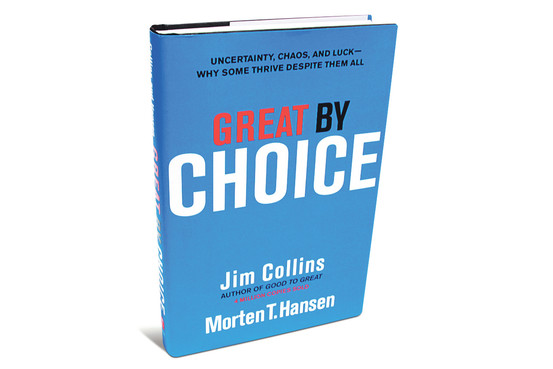 I had the opportunity to read Jim Collins’ latest book, Great by Choice, as part of my reading for the Leadership Summit class that I’m doing for my seminary work this summer.
I had the opportunity to read Jim Collins’ latest book, Great by Choice, as part of my reading for the Leadership Summit class that I’m doing for my seminary work this summer.
I’ve read many of Collins’ previous books, including Good to Great, Built to Last and How the Mighty Fall. Collins’ first book attempted to answer the question, “How do good companies become great companies?” Built to Last Answered the question, “How do great companies stay great companies?” His 2009 book, How the Mighty Fall answered the question, “How do great companies lose their way?” His most recent title, Great by Choice, answers the question “How do companies become great companies in uncertain times?”
This book follows the formula of Collins’ other books. He asks a question, finds companies that meet his criteria, tells those company’s stories and draws conclusions from them. Great by Choice tell the stories of several companies that have done well in difficult economic times, including Microsoft, Southwest Airlines and Genentech. He selected these and several other companies because their stocks outperformed their competitors by a factor of ten during a set period of time. Much of this short book is spent telling the stories of these companies during their peak and the strategies they used to outperform their competitors.
Collins drew several conclusions about the companies he researched:
- They have strong corporate discipline
- They aren’t necessarily the quickest innovators. They test theories a lot before making big movies (firing bullets, then cannonballs).
- They are “Specific, Methodological, and Consistent” or “SMaC” as Collins refers to them.
- They have strong cash reserves and are always keenly aware of corporate risks
- They take strong advantage of luck when it comes their way and minimize the ramifications of bad luck that comes their way.
Overall, I was less impressed with Great by Choice than I was with Collins’ better known book, Good to Great. I really enjoyed the way Collins’ shared the stories of the companies’ successes, but was less convinced by the conclusions he drew. It also seemed that the commonalities between the companies that made them successful are things that any common sense companies would do. If you haven’t read any of Collins’ books, I’d suggest picking up Good to Great before considering reading Great by Choice or How the Mighty Fall. If you have read Good to Great and can’t get enough of Collins’ work, Great by Choice might be worth picking up.
